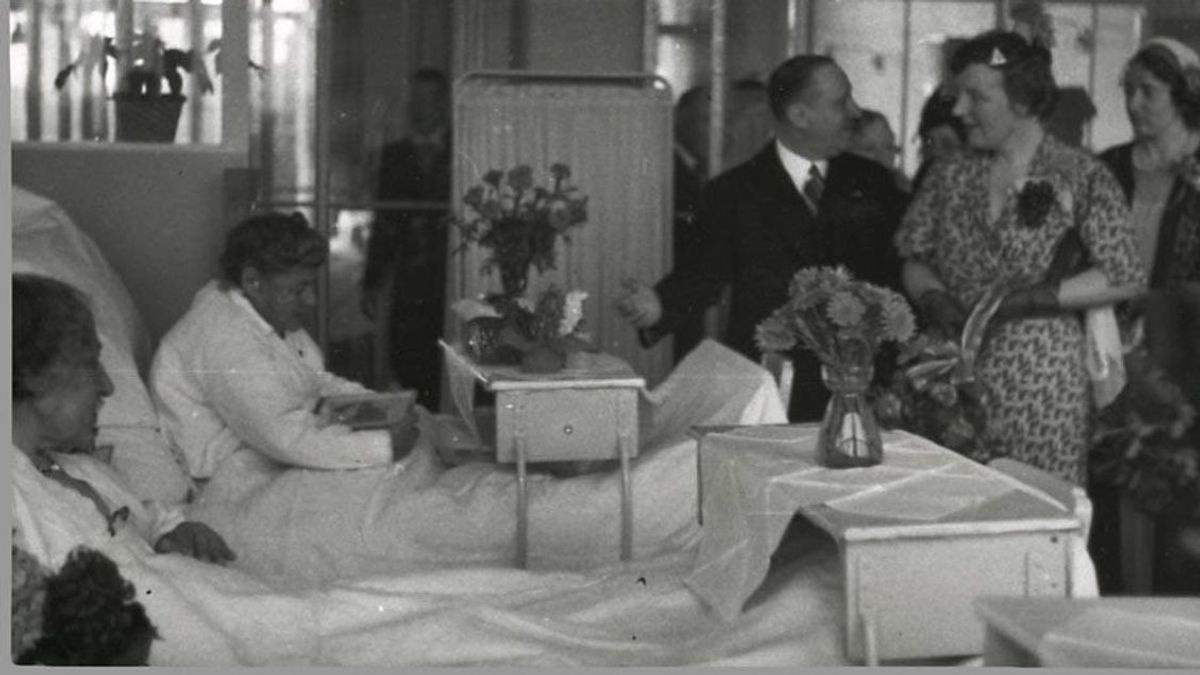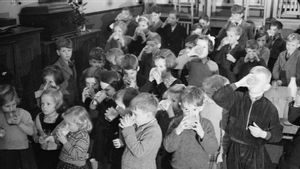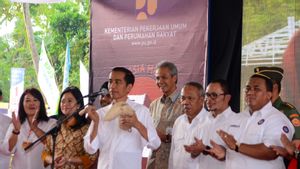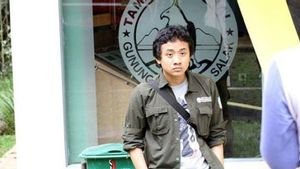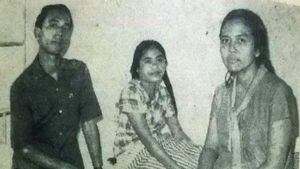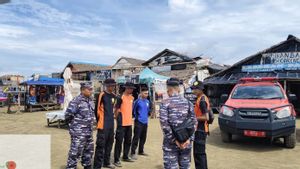JAKARTA - Dutch trading partnership employees, VOCs often could not maintain their morale in Batavia (now: Jakarta). Every day they like to party and play women. This activity was carried out like not tomorrow.
Problems arise. Many do not have enough savings when they retire. This condition made Deakoni Council take a stand. The owner of the power does not want his compatriots to be neglected and lonely. They then provide two options, enter a nursing home or get compensation.
The matter of sailing all the way to the archipelago is never easy. The risk is no joke: death. However, in order to change the fate of the poor to the rich, that risk is taken a lot. The poor in cities, orphans, and businessmen fail to come to the archipelago as VOC employees.
They consider joining the Company as the only way out to be rich. In fact, their arrival brought problems. European-style Adab seemed to be dated. The morale of the Company's employees fell at their lowest point in the center of the VOC government in Batavia.
They do many activities that are against religion because money is easy to get. They are drunk and play women. This condition makes many children outside of marriage neglected. Even their presence also raises the number of abortions.
The Company also tried to act as a religious police officer. Those caught doing prohibited activities will be subject to severe punishment. The death penalty, for example. Gradually the application of punishments related to moral violations was not carried out.
The impact is everywhere. It even brings new problems. Those who are classified as high-ranking Kompeni officials can happy to return to the Netherlands after retiring. The former official came home with a lot of money. however, not with them ordinary employees, especially classiers.
The life of the spree forced them to spend their retirement in Batavia. They try to survive with minimal assets. This condition is getting more difficult because health problems are starting to come. Some of them are getting crazy.
Thankfully, retired VOC employees have families who can take care of them. However, some of them actually live alone. This phenomenon has been observed by the Council of Churches to the Council of Churches (Dikoni Council).
They do not want fellow European communities to live in the past. VOC officials and the Church Council have also started presenting Armenhuis (poor house: Panti Jompo) since 1629. The orphanage also accommodates the elderly from Batavian Christians, Mardijkers (free slaves), and Christian slave buyers.
In the 17th century, it was also noted that many poor people were elderly - European and Asian nationals who lived in the city. After providing assistance to the poor, individuals experienced a comprehensive reorganization, Wisma the Poor (armenhuis) became the main shelter for the elderly who were sick, poor, or mentally ill, "said Hendrik E. Niemeijer in the book Anti-Archives Verebigde Oostindische Compagnie VOC and Batavia City Government Institutions (2007).
The policy of building nursing homes was criticized. Effectiveness is questionable. This condition makes the Council of Churches not only rely on nursing homes to help the elderly. Those who incidentally are elderly have not been exposed to chronic illness, go bankrupt, and are crazy to be allowed to stay at home.
The church council is also still responsible for providing them with compensation every month. This condition makes people in Batavia call the elderly who are no longer working as: the poor who are paid.
They are given compensation so that the elderly can take care of themselves in their respective homes. When they begin to be unable to take care of themselves, the elderly will be appointed to a nursing home. This means that all the assets owned by the elderly are then auctioned off and used to prosper the elderly in nursing homes.
SEE ALSO:
The amount of compensation provided by the Council of Churches is not large. However, it is quite helpful. The assistance was given to thousands of people. Compensation will increase when many officials care to reach out to help.
They also add compensation by giving alms and selling rice every month. The portrait is similar to those presented in the Windmill Country. So that the Jompo Panti does not accumulate his mind. Recently, along with the restoration of nursing homes, the number of those who received compensation was reduced in 1686.
The Council of Churches wants to really select which elderly people really need to be helped and which ones can still be independent. They want to provide assistance to the elderly who are truly entitled. All because the finances of the Church Council are running low.
The rest are closely selected and the rest are only about hundreds of poor people who are still allowed to live in their respective homes. Most of them are elderly citizens or widows who have certain social positions (European bodies).
With a limited number of poor Europeans still allowed to receive monthly compensation at their homes, as well as a number of residents mustzo (mixed blood) and indigenous Christian women, but the number of their allowances is much smaller than that received by Europeans," explained Hendrik E. Niemeijer in the book Batavia: The Colonial Society of the XVII Century (2012).
The English, Chinese, Japanese, Arabic, and French versions are automatically generated by the AI. So there may still be inaccuracies in translating, please always see Indonesian as our main language. (system supported by DigitalSiber.id)
